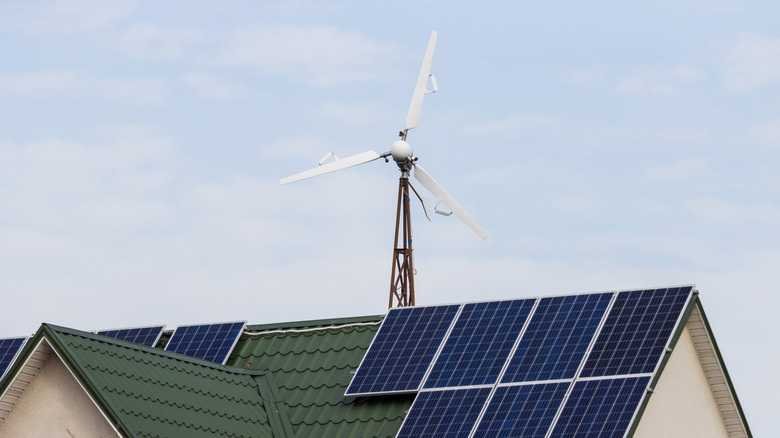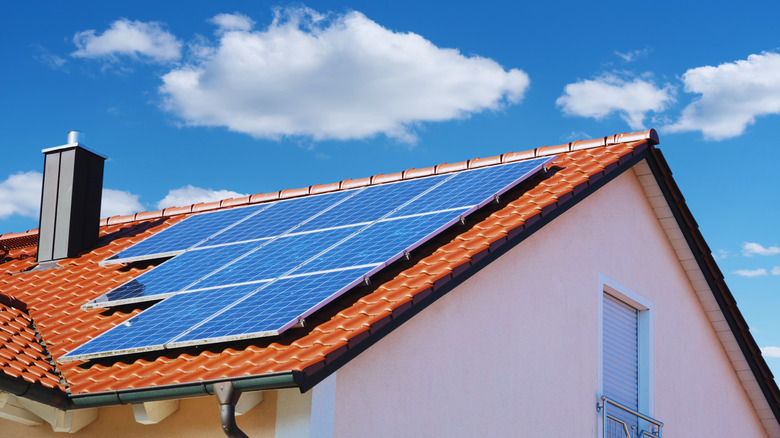Wind Power Vs Solar Energy: Which Energy Source Is More Efficient For Homeowners?
More and more homeowners are adopting renewable energy sources. Many are going for solar panels, and others are choosing wind turbines — and it's all about energy efficiency. So, which source is more efficient than the other? Obviously, there is no one-size-fits-all option. It largely depends on where you live and how much energy you need. For most homeowners, solar panels are more practical, affordable, and easier to install. Wind turbines, on the other hand, can be more ideal if you live in an open, windy area. Generally speaking, however, wind power is more efficient than solar.
When you picture wind energy, you might think of giant turbines in the countryside. But homeowners can also benefit from wind power — only on a smaller scale. Residential wind systems use small turbines that catch passing winds and turn that motion into electricity. If your house is out in the open, wind power can be surprisingly effective. The main advantage of wind power is that it works day and night. Unlike solar panels that take a break after sunset, a wind turbine keeps spinning as long as there's a breeze. A well-placed turbine can cover more than half of a household's energy needs, sometimes almost all of it. With enough wind, you can be fully independent from the grid.
So, what's the catch? Wind turbines come with a steep upfront cost. They also have moving parts, which means more maintenance compared to solar panels. Plus, not every neighbor will be thrilled about the noise in your backyard. Wind power is efficient if you've got the right location. But for city and suburban households, it's usually less practical than solar.
Is solar energy a better choice?
While wind power is more efficient, solar energy is the more practical option in most cases. Solar panels sit quietly on your roof, soaking up sunlight and converting it into electricity. The convenience of solar energy is one of the reasons it has exploded in popularity among homeowners. Modern solar panels can cover most, if not all, of your home's energy needs, depending on where you live and how many panels you install. They're also incredibly low-maintenance since they have no moving parts. Aside from the occasional cleaning or inspection, they'll keep working reliably for up to 30 years with only a slight drop in efficiency over time. It's worth mentioning that solar panels increase home value, too.
Another advantage of solar energy is its relatively low installation cost. Prices have dropped quite a bit over the last decade. You can even get better rates if you install the panels at the right time of year. Add in tax credits on your energy bill, and the payback period can be as short as six years. After that, you're basically generating free power from the sun. Plus, the energy output that comes from solar is more predictable. The output will be lower on cloudy days, but you'll still get just enough energy. Panels can generate electricity from diffused sunlight that penetrates the clouds.
On the downside, solar panels do tend to degrade over time, although at a very slow rate. They get around 0.75% less efficient each year. And while solar energy itself is eco-friendly, the mining and manufacturing of the panels isn't. Then again, it's still cleaner than fossil fuels.

